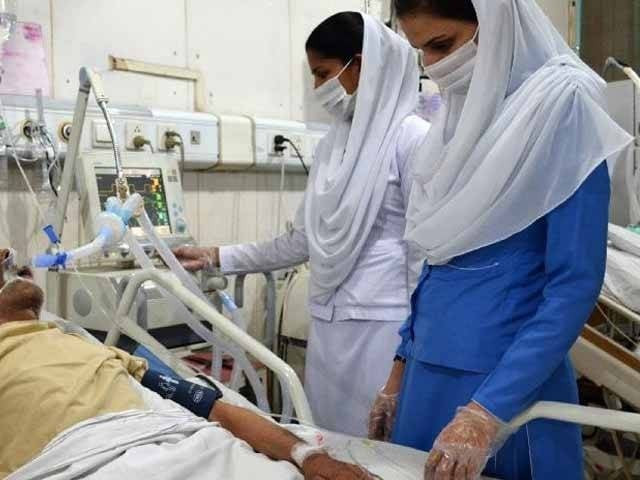Influenza surge hits Karachi
Doctors report fivefold increase in patients as H1N1 virus spreads rapidly

There has been a sharp surge in cases of cold, cough, and fever, as the seasonal influenza virus begins to spread rapidly in the metropolitan city. Both government hospitals and private clinics are witnessing a spike in patients, with vulnerable groups such as elderly citizens, young children, pregnant women, and those with respiratory ailments being the most affected.
Medical experts have warned that the current strain of the influenza virus, identified as H1N1, is showing varied symptoms compared to previous years, including gastrointestinal issues like diarrhea. They strongly advise citizens to get vaccinated annually, as the influenza virus mutates each year, rendering the previous year's vaccine ineffective.
Speaking to The Express Tribune, Dr Faisal Javed, a general physician at JPMC, confirmed a nearly fivefold increase in patients presenting with symptoms of cold, cough, and fever in recent weeks. He added that the number of daily cases has surged from 30-40 to around 100-200.
"This rise is typical during seasonal changes, especially when temperatures drop or humidity increases," Dr Faisal said. "However, what's different this year is the involvement of the digestive system, with many patients also experiencing diarrhea." He further explained that the H1N1 influenza virus is the primary cause behind the current wave of illness. While it generally causes upper respiratory tract infections such as cold and cough, in some cases it can escalate to high fever and pneumonia, particularly in patients with pre-existing health conditions.
Dr Faisal stressed that certain groups are at higher risk of developing complications from the virus. These include children under the age of six, adults over the age of 50, those with chronic lung diseases such as COPD and emphysema, and pregnant women. He pointed out that pregnant women, due to their already weakened immune systems, are particularly susceptible to the influenza virus, which can affect both the mother and the unborn child. Dr Faisal urged citizens to receive the influenza vaccine every year. "The influenza virus changes its structure annually. Therefore, last year's vaccine offers no protection against this year's strain," he explained.





















COMMENTS
Comments are moderated and generally will be posted if they are on-topic and not abusive.
For more information, please see our Comments FAQ